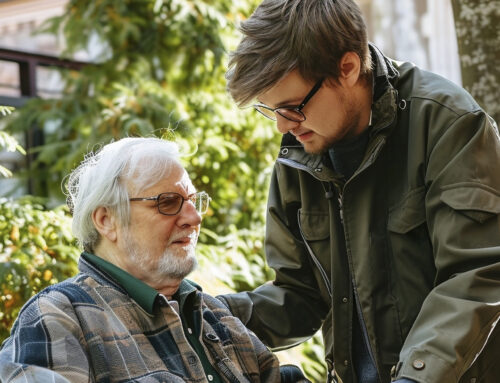As I get older, it has become much easier to put things into perspective. I see young parents interacting with their children, hopeful and tired. I see teens walking around carelessly, and quite recklessly because they have more years ahead of them than behind them. I am often accosted on buses or trains by a friendly elderly person telling me about the next best cruise that I should book. I am at a pivotal time where I feel an urgency about action and engagement, but the wrinkles on my face remind me that I am no longer considered at my peak. Unfortunately, my new skill at compartmentalization has made me impatient. In fact, it has produced explosive tumult in my mind and heart.
Everyone is busy. Check.
Everyone needs more sleep. Check.
Everyone has their own unique problems. Check.
I got it. I don’t want to invade anyone’s protective bubble. What I do want is a collective Zen moment…I don’t know, maybe a minute during the day when we all realize that a friendly smile or soft touch can alter the temperature of the day, make us feel safer, maybe even spread some love.
Alas, I will admit what has most stirred my restless soul: I have been reading Somebody I Used to Know: A Memoir by Wendy Mitchell. At a young 58 years old, Mitchell was diagnosed with early onset Alzheimer’s disease. Instead of facing this challenge with hopelessness, she waged a war against it. Her gumption to learn about dementia was relentless and exhaustive, primarily because she couldn’t find the resources to help her navigate this diagnosis with practical information and integrity. She begged others to treat her with respect, as a person living with dementia not an absent being, dismissed by society.
If you had the chance to read Matt’s blog, “No One Listens,” then you probably know where I’m heading in this musing. It is bad enough that there is an abundance of recycled verbiage on dementia, but what’s worse is that our message, one that focuses on hope and strength, one that offers an innovative and transformational approach to dementia care, remains unheard.
Oh Wendy, how I wish we knew you. We would have applauded your intuitiveness and foresight about your multiple intelligences: creating a memory room, changing the color of your plates or bowls while eating, using a smart speaker to communicate, and the countless other ways you relearned skills and capitalized on your intellectual strengths to live with dementia. I especially liked your advice to caregivers: “And never think you can’t learn new things when you have dementia.” The Center for Holistic Dementia Care echoes that sage counsel. Now we just need others to hear us.
-Melissa Mirabello





